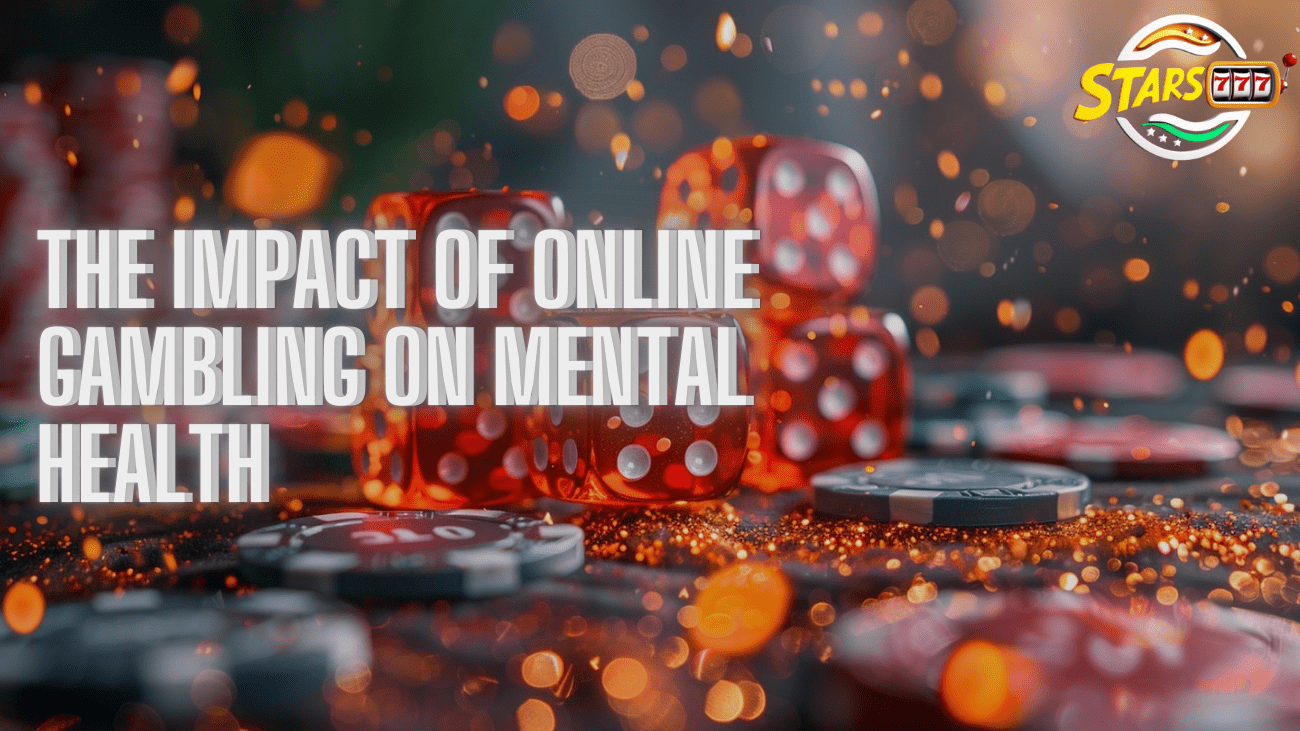The Impact of Online Gambling on Mental Health
The rise of online gambling has revolutionized the way people engage with betting and gaming, offering unprecedented convenience and accessibility. With the ability to gamble from anywhere, at any time, the online gambling industry has experienced explosive growth over the past two decades. However, this accessibility comes with a downside—its potential to negatively affect mental health.
While online gambling can be a source of entertainment for many, it can also lead to significant mental health challenges for some individuals. In this blog, we will explore the various ways online gambling impacts mental health, including its effects on stress, anxiety, depression, addiction, and relationships, and offer guidance on how to mitigate these risks.
1. The Allure of Online Gambling: Convenience and Risk
Online gambling has made betting on sports, playing poker, or spinning slot machines just a few clicks away. This convenience, however, can quickly turn from casual play into a compulsive habit. For some individuals, the easy accessibility and immersive nature of online gambling can blur the line between entertainment and addiction.
One of the core attractions of online gambling is its immediate gratification. Players can place bets in seconds, and wins or losses are instant. This constant stimulation can trigger dopamine release in the brain—the same “feel-good” chemical associated with pleasure and reward. While winning can lead to feelings of excitement and happiness, the highs can also create a cycle of dependence, where players continually chase that same emotional rush. Over time, this can have severe effects on mental health.
2. The Psychological Toll of Gambling Addiction
Gambling addiction, often referred to as gambling disorder, is a recognized mental health condition. For those struggling with this addiction, the impact on mental health can be profound. Gambling disorder affects how the brain processes rewards and can lead to compulsive behavior, even when individuals know it is harmful.

Here are some of the key ways gambling addiction affects mental health:
- Anxiety and Stress: Many individuals with gambling problems experience high levels of anxiety and stress. The uncertainty of winning or losing, coupled with the financial risks, can create a constant sense of tension. The anxiety often worsens as individuals attempt to hide their gambling habits or when they are confronted with mounting losses.
- Depression: Gambling addiction often leads to feelings of hopelessness, guilt, and regret. When individuals lose significant amounts of money, they may feel trapped, believing there is no way to recover. The emotional distress from continuous losses can lead to feelings of worthlessness, which in turn, increases the likelihood of depression.
- Isolation: People struggling with gambling addiction may isolate themselves from friends and family. They might avoid social situations, particularly if they have borrowed money or lied to their loved ones about their gambling habits. This isolation can exacerbate feelings of loneliness and depression.
3. Financial Stress and Its Impact on Mental Health
One of the most significant sources of mental health strain caused by online gambling is financial stress. Online gambling makes it easy to place bets with credit cards, e-wallets, or even cryptocurrencies, which can lead to overspending. Unlike traditional casinos where players physically exchange money, the digital nature of online gambling can make it more challenging to keep track of losses.
As financial difficulties mount, individuals often experience:
- Overwhelming Stress: The realization of being in debt due to gambling can create intense stress, which may spill over into other areas of life. The constant pressure to recover losses often leads to more gambling, creating a destructive cycle.
- Guilt and Shame: Many individuals who find themselves in financial trouble due to online gambling feel guilty for their behavior, especially if it negatively affects their loved ones. This guilt can worsen anxiety and depression, making it harder to seek help.
- Impaired Decision-Making: When faced with financial stress, individuals may resort to desperate measures, such as taking out loans, borrowing from friends or family, or using credit cards to continue gambling in an attempt to “win back” their losses. These decisions often backfire, deepening financial and emotional turmoil.
4. The Role of Technology in Exacerbating Mental Health Issues
The digital nature of online gambling creates unique challenges for mental health. Unlike physical casinos, which have opening and closing hours, online gambling platforms are available 24/7. This constant availability can lead to excessive gambling behavior, where individuals find themselves playing late into the night, neglecting sleep, work, or other responsibilities.
In addition, the technology used in online gambling platforms can contribute to addiction:
- Targeted Advertising: Online gambling companies often use targeted advertising to reach individuals who may be vulnerable to gambling addiction. Personalized ads, special offers, and reminders to log in can act as triggers, encouraging people to gamble even if they’ve been trying to cut back.
- In-Game Mechanics: Many online gambling platforms use gamification techniques to keep players engaged. Frequent notifications, leaderboard rankings, and loyalty rewards create an environment where players are continually incentivized to keep playing, making it harder to take a break.
5. The Social Impact: Relationships and Mental Health
Online gambling doesn’t just affect the individual—it can also strain personal relationships. As gambling becomes more compulsive, individuals often withdraw from their loved ones, leading to feelings of mistrust, anger, and resentment.
- Lies and Secrecy: People with gambling problems may feel ashamed of their behavior and attempt to hide their gambling activities. This secrecy can cause rifts in relationships, especially if the gambling leads to financial hardship. Partners may feel betrayed when they discover hidden debts or missed payments, resulting in arguments and a breakdown of trust.
- Emotional Distance: When someone is consumed by online gambling, they may become emotionally distant from their partner, family, or friends. Instead of spending quality time together, they may be preoccupied with gambling, leading to a loss of connection and emotional support.
- Domestic Strain: In more severe cases, gambling addiction can lead to domestic tension, with arguments centered around financial instability or secrecy. This stress can contribute to the breakdown of relationships, further isolating the individual.
6. How to Mitigate the Mental Health Risks of Online Gambling
While online gambling poses risks to mental health, there are steps individuals can take to minimize harm and maintain a healthy relationship with gambling.
- Set Limits: One of the most effective ways to avoid gambling addiction is to set both time and monetary limits before gambling. Many online platforms offer tools that allow players to cap their spending or set reminders to take breaks. By sticking to these limits, individuals can prevent gambling from taking over their lives.
- Recognize Warning Signs: It’s important to recognize the early warning signs of gambling addiction, such as chasing losses, gambling to escape emotional distress, or neglecting responsibilities. When these behaviors arise, it’s crucial to take a step back and assess whether gambling is becoming a problem.
- Seek Support: If you or someone you know is struggling with gambling addiction, seeking professional help is essential. Many organizations, such as Gamblers Anonymous or the National Council on Problem Gambling, offer resources and support groups for individuals dealing with gambling-related mental health issues.
- Foster Healthy Hobbies: To prevent online gambling from becoming the sole focus of one’s time, it’s essential to develop other hobbies and activities. Engaging in social, physical, or creative pursuits can provide balance and reduce the emotional reliance on gambling.

Conclusion
Online gambling has made gaming and betting more accessible than ever, but it also carries risks for mental health. From addiction and financial stress to isolation and relationship breakdowns, the psychological effects of online gambling can be severe. By understanding these risks and taking proactive steps, individuals can enjoy online gambling responsibly while protecting their mental health. Maintaining balance, setting limits, and seeking help when needed are all key components of a healthy relationship with gambling.








